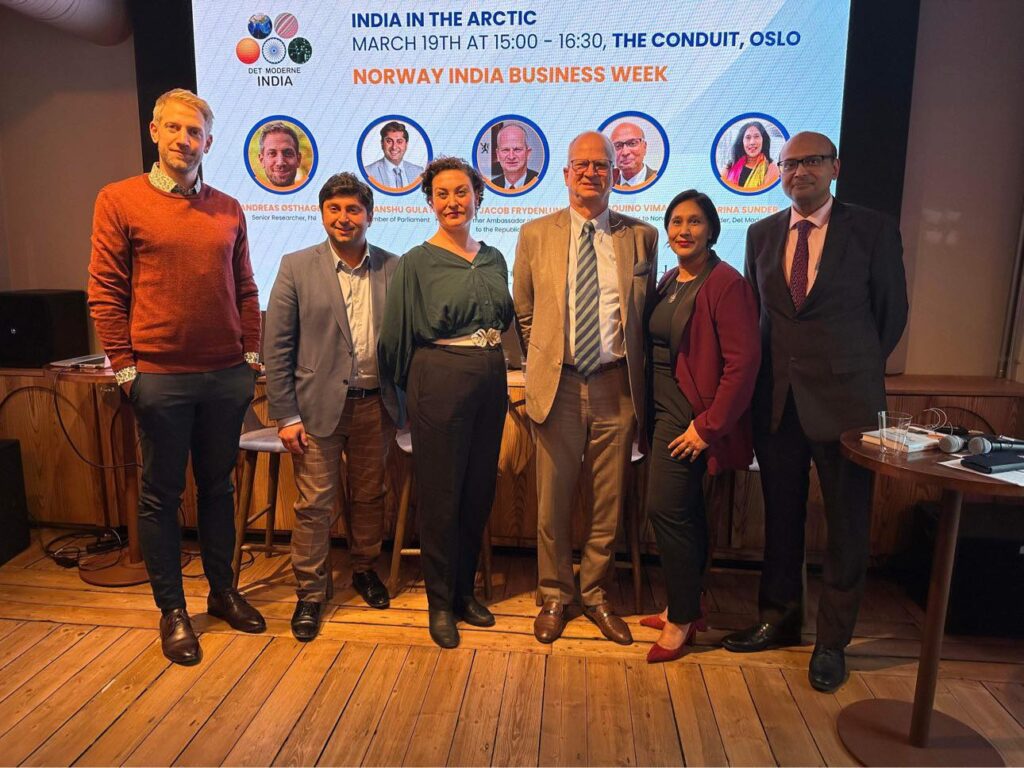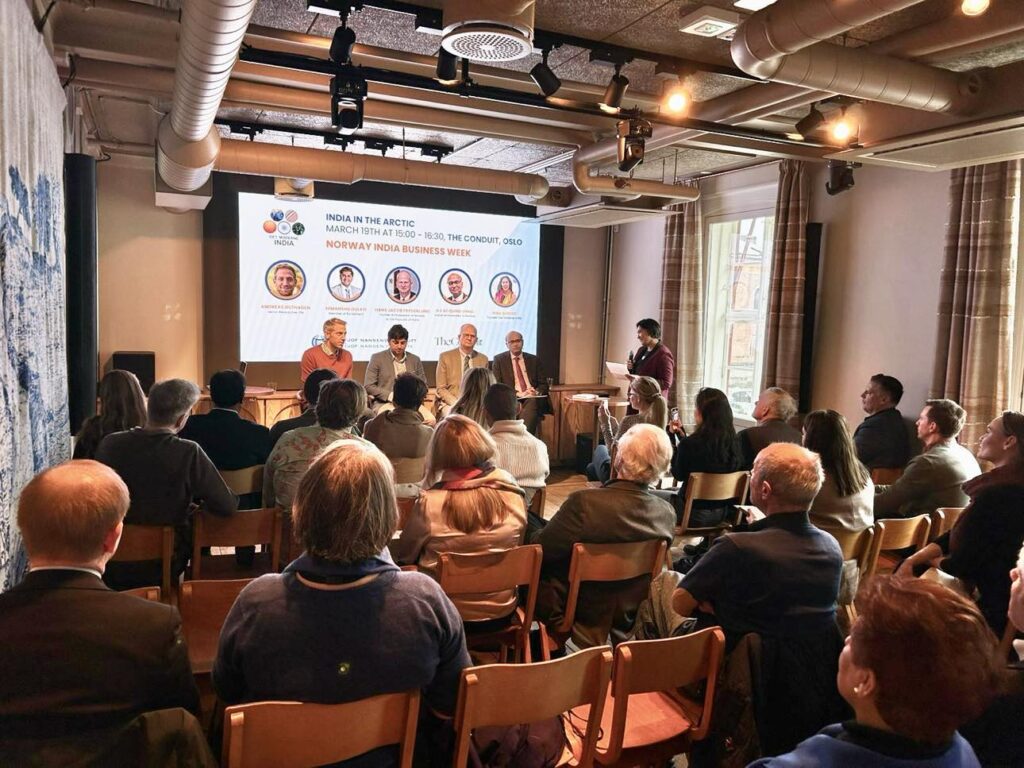A big thank you to all of you who joined our event on Impact Investment on Friday the 13th.
Key Topics that were discussed:
Agenda*:
13:00-13:15: Welcome Remarks by DMI, NorNAB, The Conduit
13:15-13:40: Keynote by Mr. K Rajaraman, Chairperson, IFSCA
13:40-14:20: Panel Discussion featuring:
Moderator: Jørn Haanæs,
The IFSCA is a unified authority for the development and regulation of financial products, financial services and financial institutions in the International Financial Services Centre (IFSC) in India. At present, the GIFT IFSC is the maiden international financial services centre in India. Prior to the establishment of IFSCA, the domestic financial regulators, namely, RBI, SEBI, PFRDA and IRDAI regulated the business in IFSC.
As the dynamic nature of business in the IFSC requires a high degree of inter-regulatory coordination within the financial sector, the IFSCA has been established as a unified regulator with a holistic vision in order to promote ease of doing business in IFSC and provide world class regulatory environment. The main objective of the IFSCA is to develop a strong global connection and focus on the needs of the Indian economy, as well as to serve as an international financial platform for the entire region and the global economy as a whole.
The Nordic countries are globally recognized for their pristine nature and pure water, with Cleantech serving as a cornerstone of our societies. By merging advanced technology with effective water management, the Nordics have preserved and restored some of the world's finest water resources.
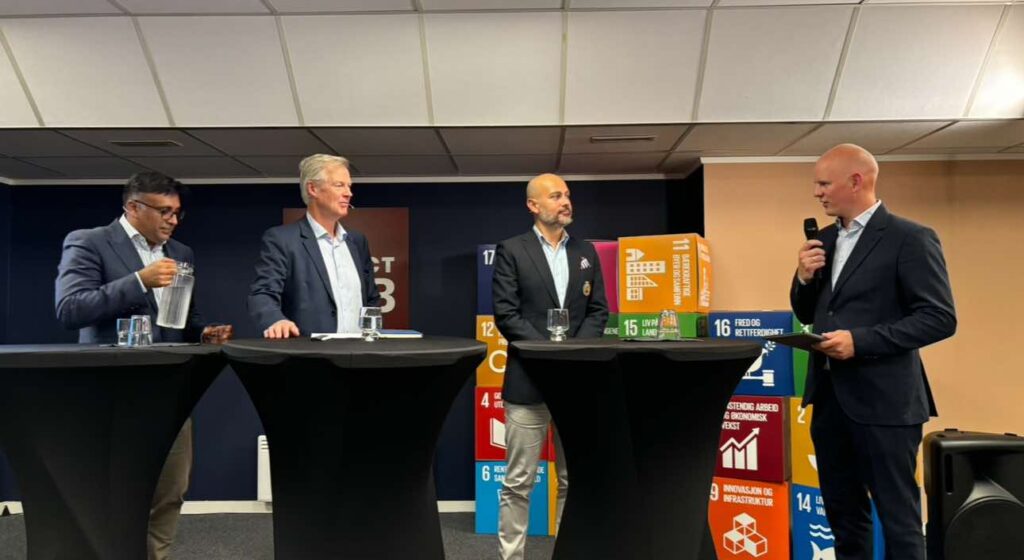
This year's seminar at Arendalsuka was centered on a crucial topic: "India: The Potential of Recycling Water and Waste – Myth and Reality in Achieving a Circular Economy."
Our aim was to explore and develop sustainable solutions for India’s water challenges by harnessing both Indian and Nordic knowledge and technology.
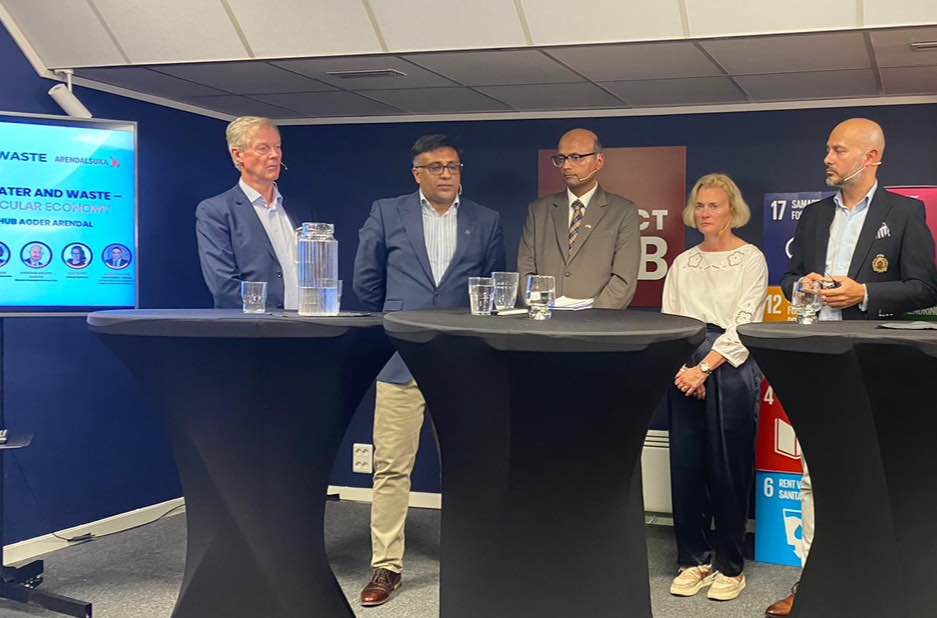
We were fortunate to feature an exceptional lineup of speakers and panelists who offered valuable insights on this critical issue.
We also delved into Indo-Norwegian cooperation projects, particularly in waste management – a sector with immense potential for impactful conversations.
Some of the key questions we explored included:
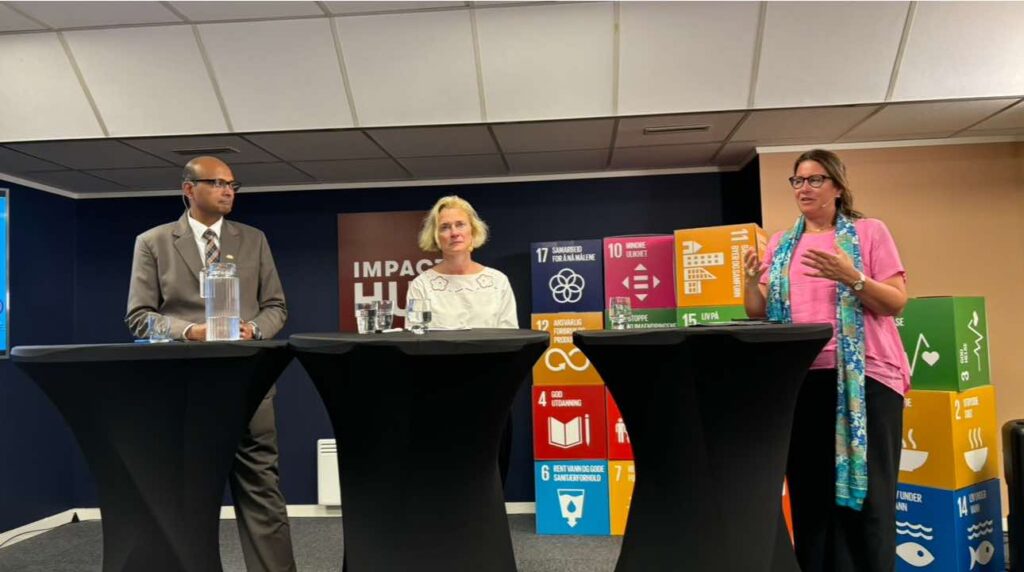
We look forward to continuing this essential dialogue and exploring collaborative pathways to create sustainable solutions!
Invest India, in collaboration with the Invest India, Indian Danish Chamber of Commerce (IDCC), Fincham India, the Sweden-India Business Council (SIBC) the The Modern India (Det Moderne India), successfully hosted the mid-year session of the Indo-Nordic Industry Dialogue on Sustainability on July 3, 2024.
The session was chaired by Shri Balamurugan D, Joint Secretary, Department for Promotion of Industry and Internal Trade, Ministry of Commerce and Industry, Government of India. With over 20 companies in attendance, the event provided a platform for participants to share their progress on sustainability and climate action projects.
Aimed at enhancing industry cooperation between India and the Nordic countries, this dialogue is a crucial step towards advancing the green transition agenda. Participants commended the Joint Secretary for his open approach and encouraging interaction, and appreciated his support in addressing the challenges faced by ongoing projects.
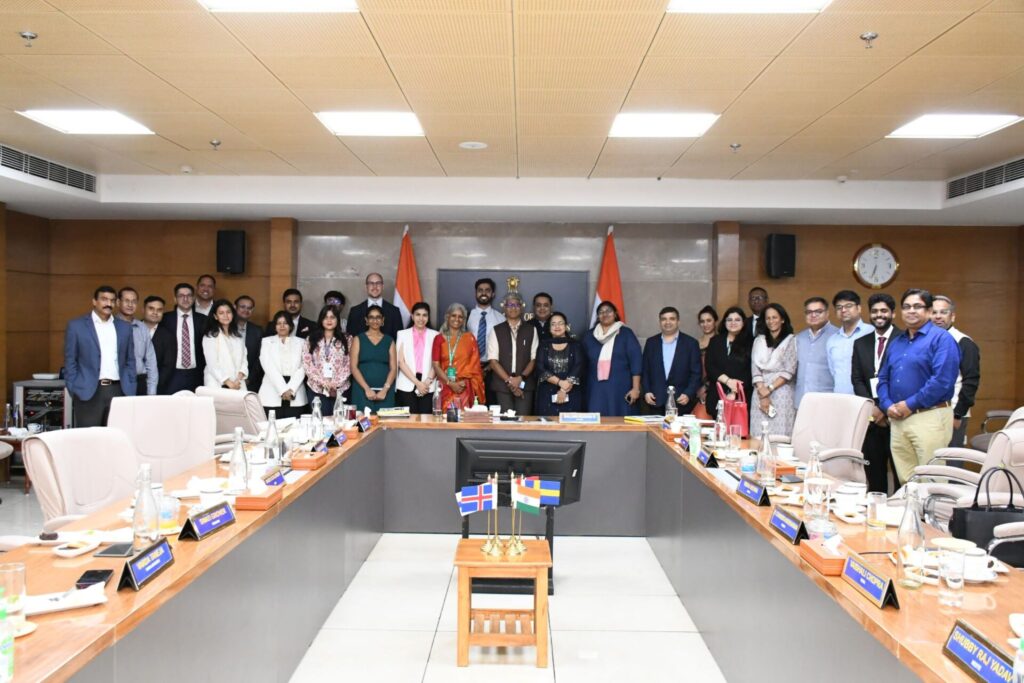
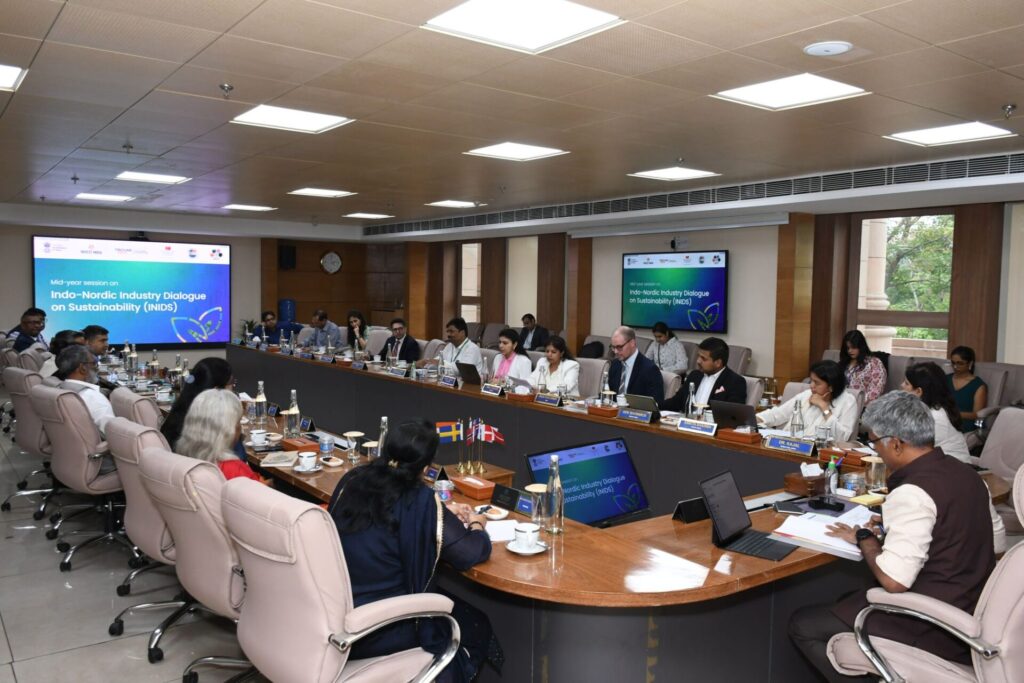
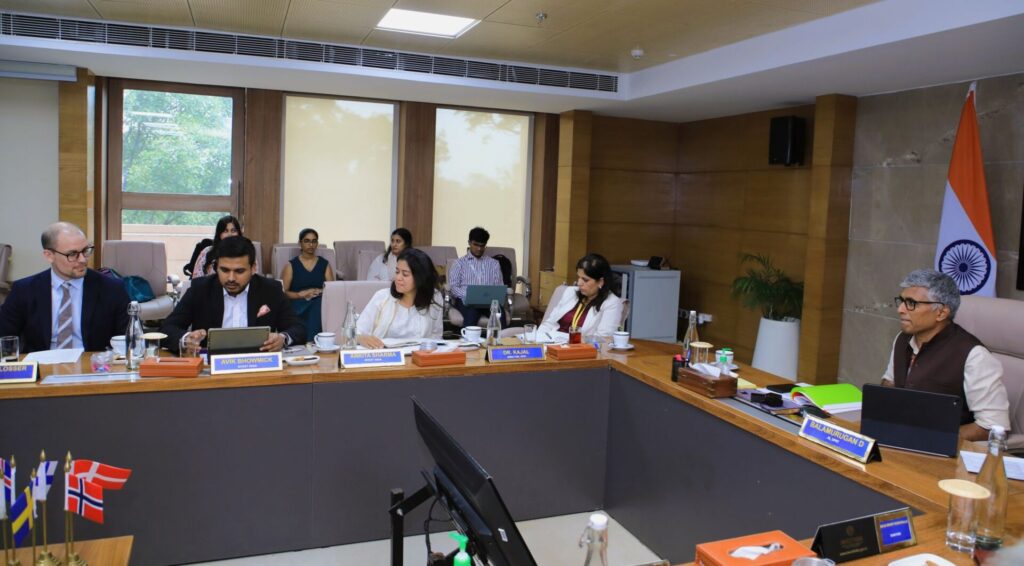
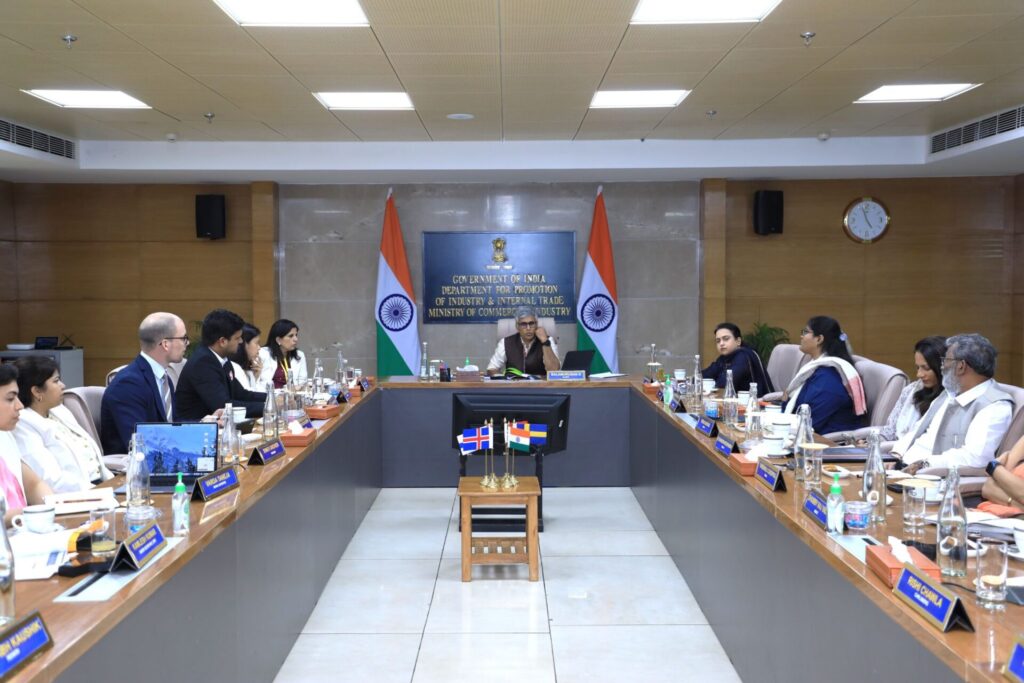
Vanligvis har vi hatt fokus på eksport til India. På dette arrangement ønsket vi å se nærmere på det å importere fra India.
Interessen for norsk handel med India øker, både med den nye frihandelsavtalen og statsminister Modis besøk til Norge til høsten. EFTA-landene og Indias nye frihandelsavtale vil gi tollfrihet for indisk eksport til Norge og norsk eksport til India. Avtalen setter også krav til respekt for menneskerettighetene og et eget organ skal overvåke avtalen.
Hvilke muligheter og utfordringer vil økt handel med India gi for norsk og indisk næringsliv, og spesielt importbedrifter?
Se vårt panel og program for fra den 12. juni:
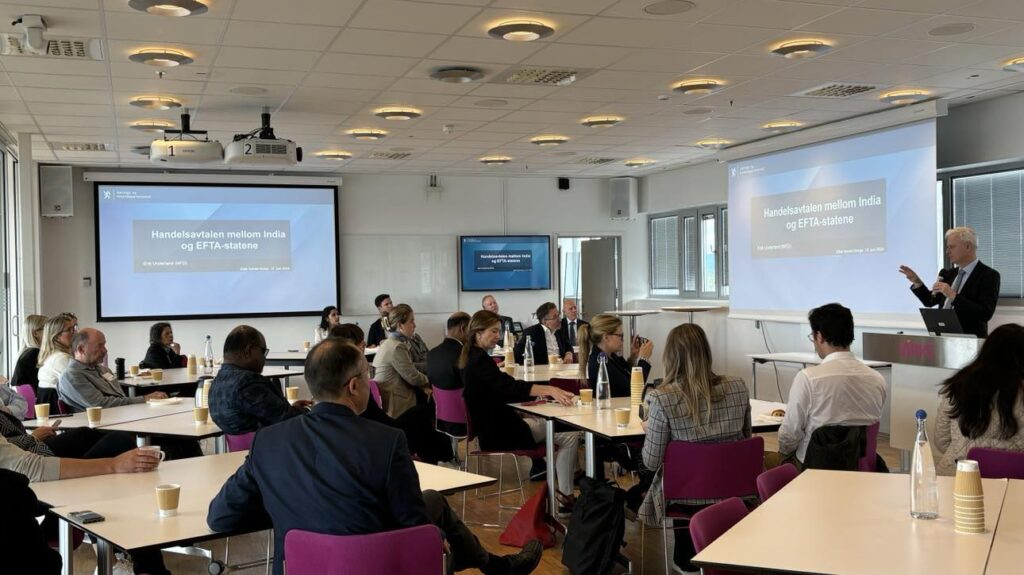
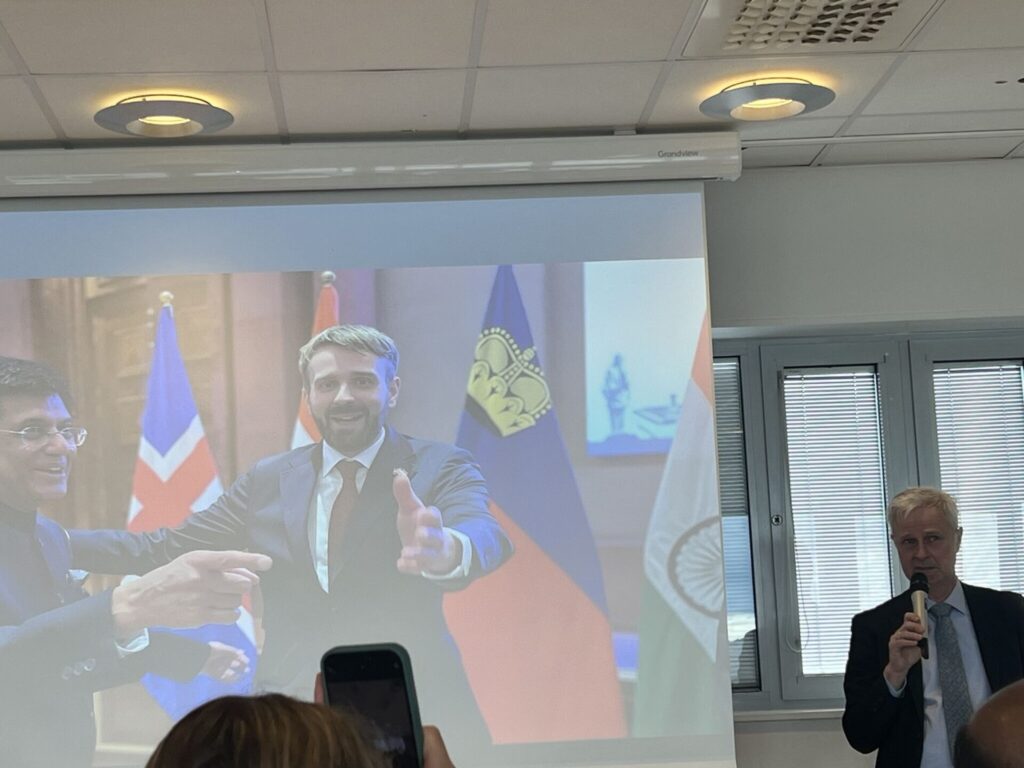
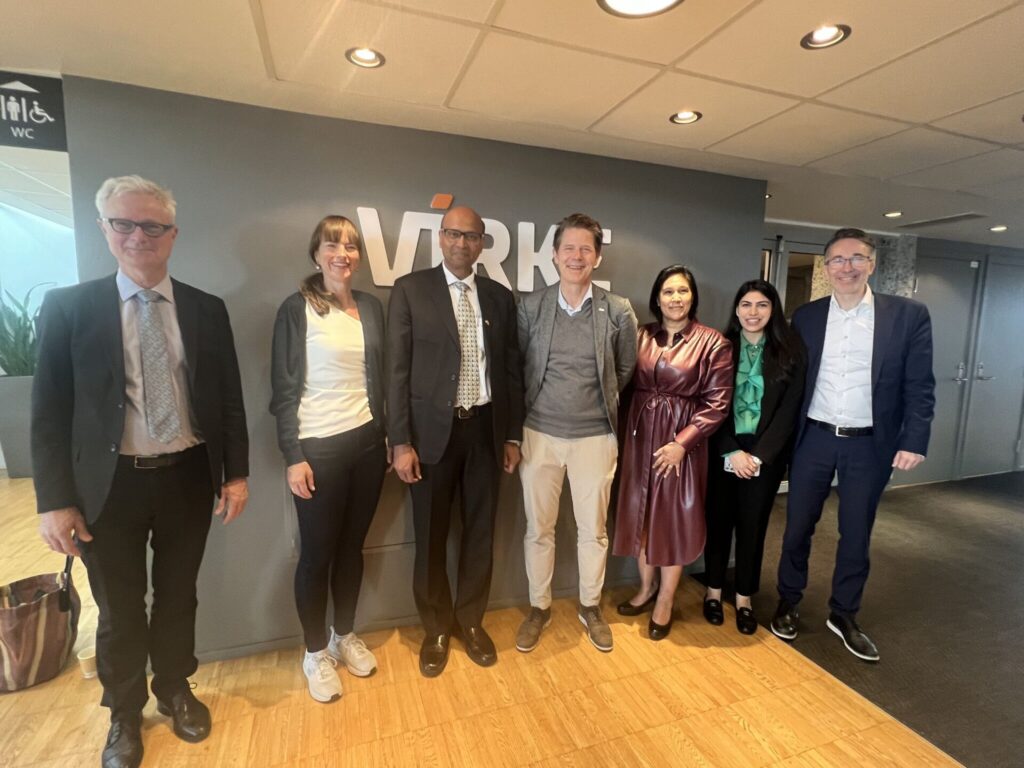
India's general elections, which spanned across seven phases from April 19th to June 1st, 2024, aimed to elect 543 members of the Lok Sabha. The results were announced on June 4, 2024.
This historic election, lasting 44 days, broke previous records and stands as the largest in history.
Key highlights of this monumental event include:
The Lok Sabha elections symbolize the essence of democracy and represent the collective voice of India’s diverse population. It is celebrated as a cherished festival of democracy.
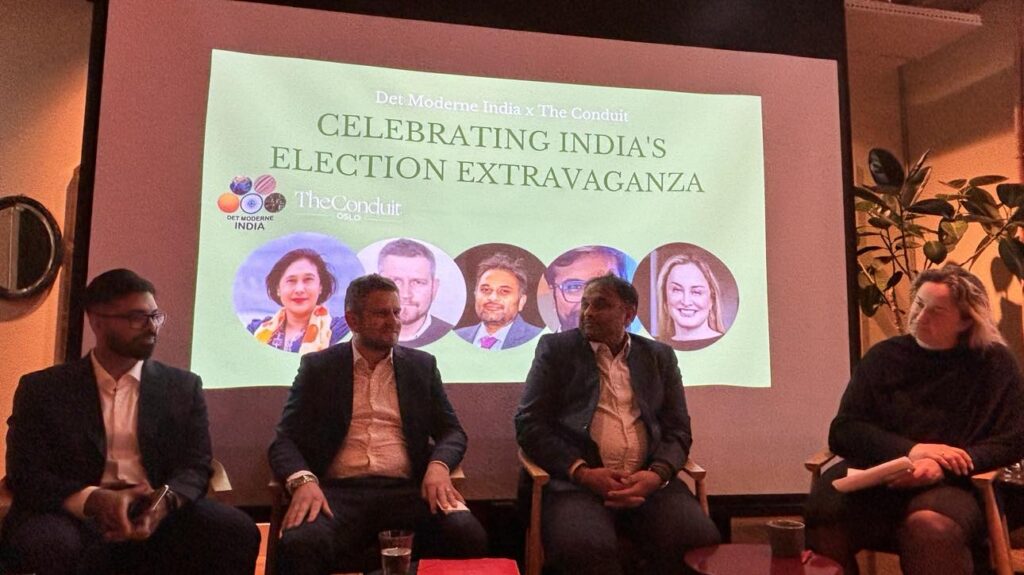
At our event, "India Votes: A Celebration of Democracy," our speakers
delved into India's global impact. The interactive session was moderated by Dilek Ayhan, CEO, The Conduit.
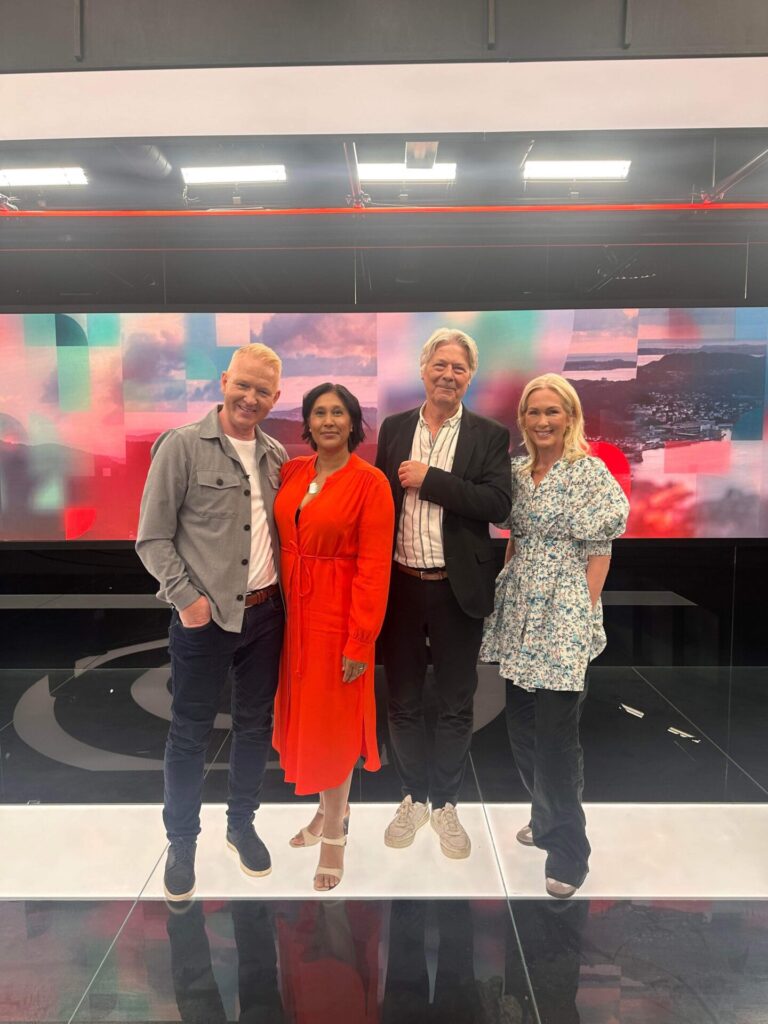
Since April 19th, marking the onset of the election season, DMI founder, Rina Sunder has been regularly featured as a commentator on the Indian election on both NRK and TV2.
Additionally, she has been a guest for the Nyhetskompaniet episodes. Nyhetskompaniet is a news-driven panel show featuring current topics and good company. Three guests and a host delve into today's news landscape, trending topics, and matters of public interest. Sunder was invited alongside former CEO of Innovation Norway, Anita K. Traaseth, as well as editor Erik Stephansen from Nettavisen, amongst others.
Video:
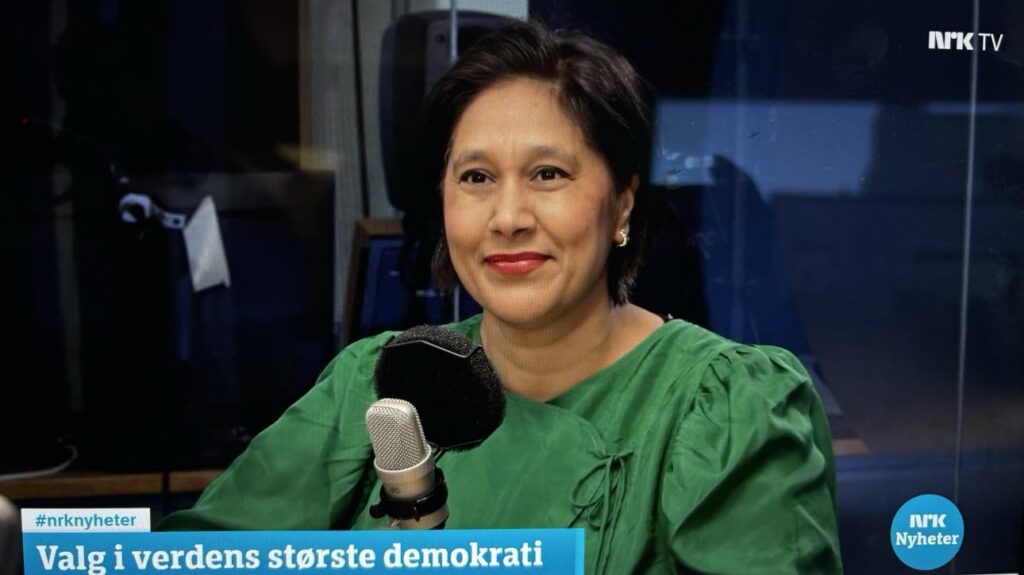
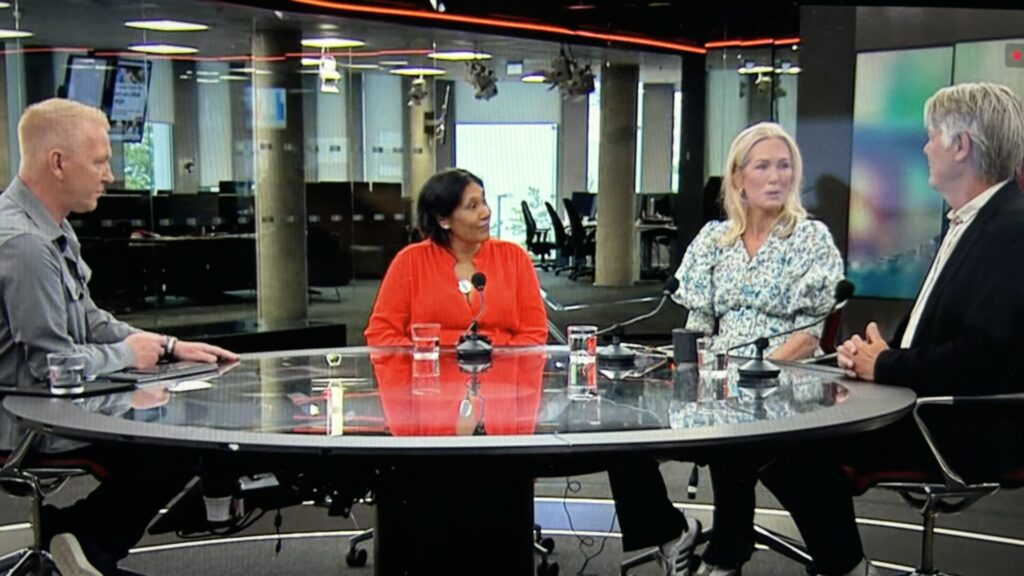
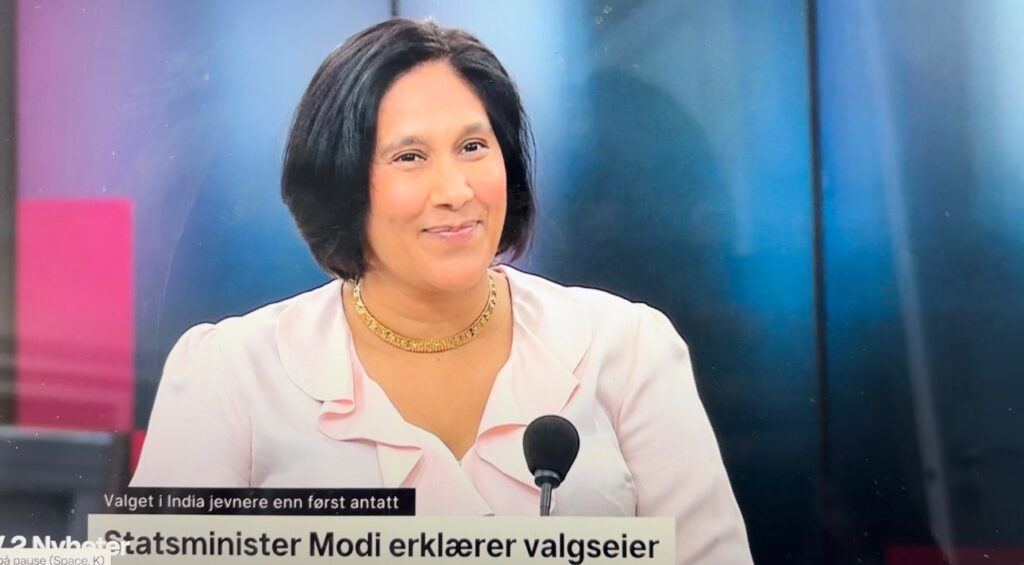
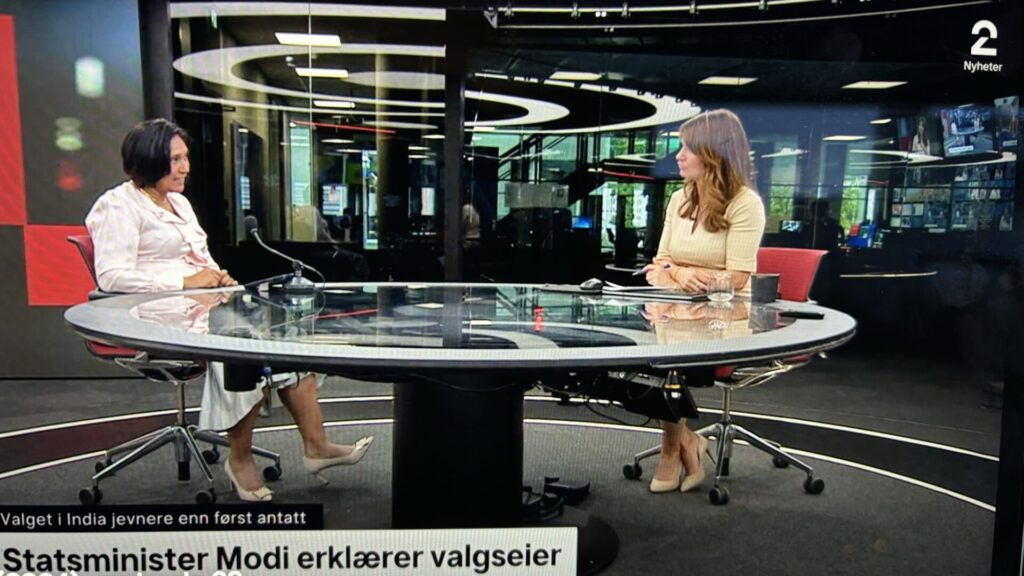
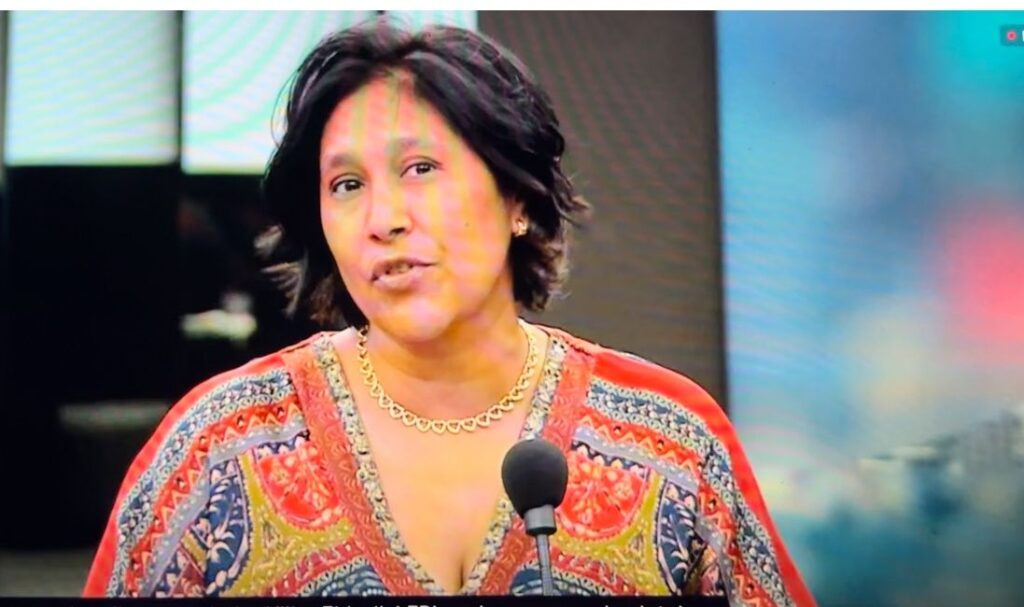
DMI is excited to collaborate with Act Now for the 5th edition of the world’s largest online environmental event, infusing it with a Nordic touch as we gear up for Narendra Modi's visit for the third Indo-Nordic summit in Norway later this year.
This 24-hour non-stop event on June 4-5, 2024, will unite organizations and individuals globally to showcase their climate actions, share insights, and spread awareness about restoring our environment and protecting the only planet we have.
Highlighting some of the Indian and Nordic speakers:
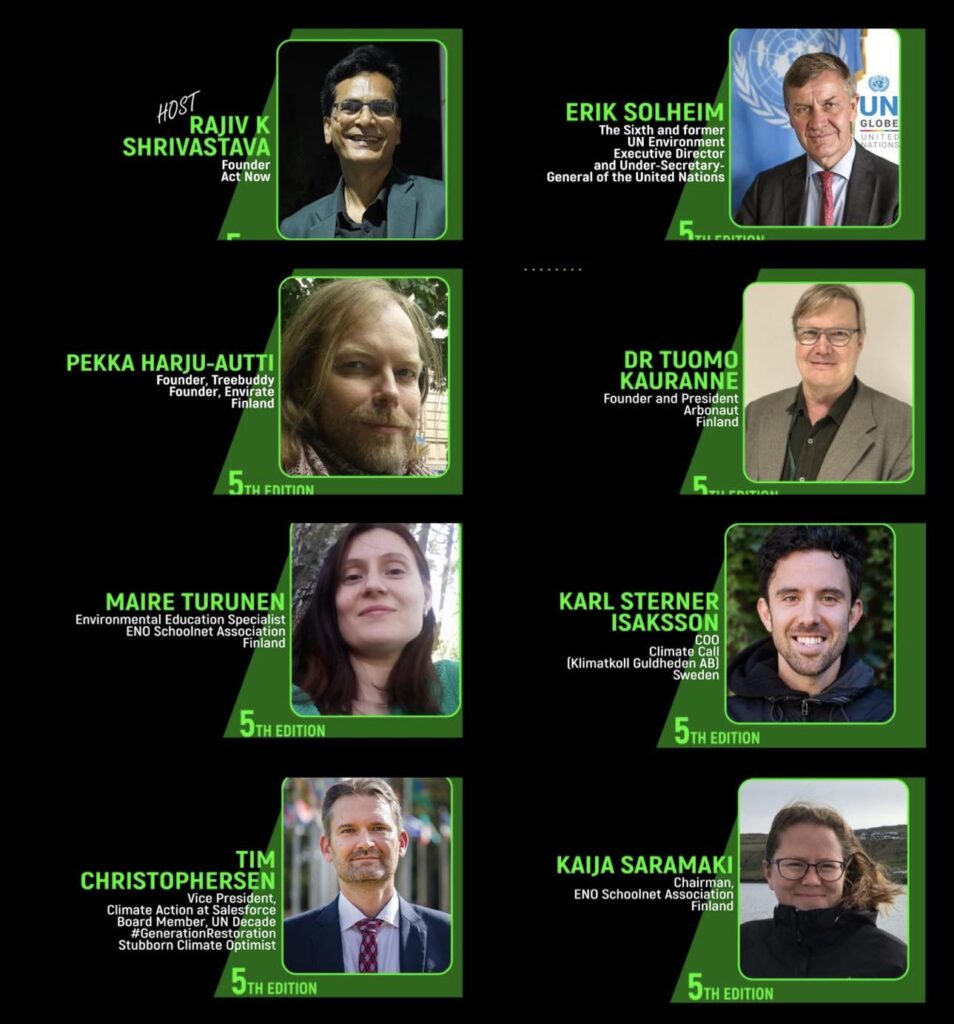
Few speakers from India
* Mr Rahul Singh, IAS, Secretary, Central Board of Secondary Education, Ministry of Education, Govt. of India
* Atul Bagai, Country Head, India, United Nations Environment Programme (UNEP)
* Message from secretary-general of UN, Antonio Guterres
* Message Executive Director of the UN Environment Programme, Inger Andersen
Speakers from Finland
* Kaija Saramaki Chairman of the Board, ENO Schoolnet Association
* Dr. Tuomo Kauranne , Founder and President of Arbonaut
* Mika Vanhanen Vanhanen, Founder of Environment Online and Plant and care for peace
* Pekka Harju-Auttti, Founder, Treebuddy
* Maire Turunen , Environment Education Specialist
Speakers from Denmark
* Tim Christophersen , VP Climate Action at Salesforce
Speakers from Norway
* Erik Solheim Solheim, Patron, Act Now, and former UN Environment Executive Director and Under-Secretary-General of the United Nations
* Rina Sunder , Founder, Det Moderne India
Speakers from Sweden
* Karl Sterner Isaksson , COO, Climate Call (Klimatkoll Guldheden AB)
Host: Rajiv K Shrivastava , Founder Act Now
The Nordic Region: A Leader in Green Innovation and Economic Prosperity
Sunder highlighted the following points about the Nordic region:
Examples of Successful Green Collaborations between the Nordic Region and India
The Nordic region's innovative approaches and successful collaborations with India demonstrate a strong commitment to sustainable development and green technology.
Discover India's dynamic political landscape through an insightful interview with DMI founder Rina Sunder. Recently featured on national broadcasting, NRK, Rina delves into key aspects of the Indian election process:
Watch the interview by clicking the link below and deepen your understanding of India's political dynamics.
India: et Modi(g) valg?
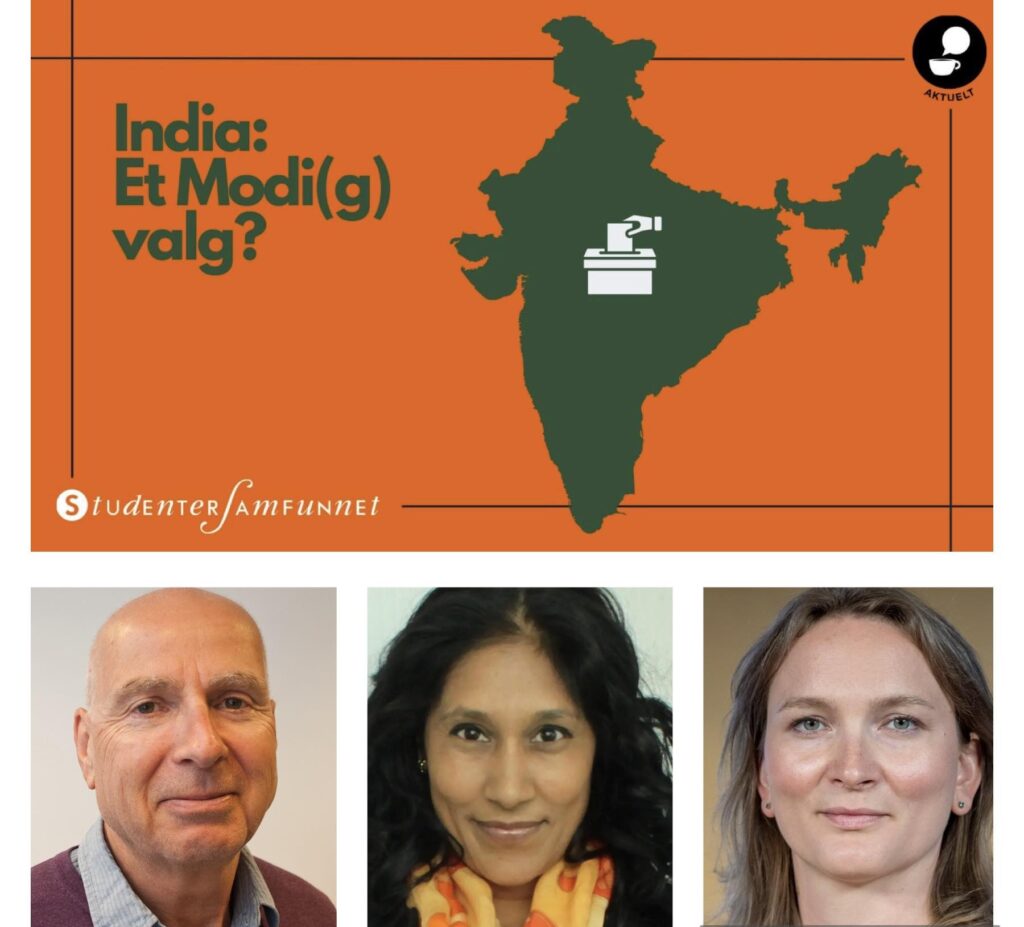
"We will take democracy to every corner of the country." Rajiv Kumar, leader of India's national election commission, echoed these words as he announced the election dates.
From April 19th and for six weeks ahead, nearly 1 billion Indians can go to the ballot boxes. That's almost 1/8 of the world's population. Why do we know so little about this historic election? How has democracy functioned under Prime Minister Modi? Is India actually called Bharat now? And if India is to be a guiding star for the future of democracy, how does that affect us?
On Tuesday April 16th Studentersamfunnet in Bergen organized a debate where we collectively took the temperature of the world's largest population - and democracy.
THE PANEL:
- Francesca Refsum Jensenius, Professor of Political Science at the University of Oslo, focusing on South Asia
- Rina Sunder, Founder of the NGO and author of Det Moderne India
- Knut Axel Jacobsen, Professor of Religious Studies at the University of Bergen, specializing in religion in India
The Minister of Trade Vestre hosted a breakfast meeting on Thursday the 21st. The EFTA-India Trade Breakfast Briefing & Norway India Business Week coincide with DMI's Anniversary Celebration and Bollywood Extravaganza. Could DMI have asked for a better timing?
EFTA, comprising Iceland, Liechtenstein, Norway, and Switzerland, is an intergovernmental organization focused on fostering free trade among its member countries. Free trade agreements aim to reduce barriers such as tariffs and quotas, benefiting local producers by limiting competition.
Despite their combined population of less than 14 million, EFTA member countries have a significant impact on global trade. In 2021, EFTA ranked among the top traders globally in both merchandise and services.
After over 15 years of negotiations, the finalized EFTA-India trade deal promises simplified customs procedures and increased market access for businesses in both regions. This agreement is expected to bring substantial economic benefits, including expanded trade and investment flows, job creation, and overall economic growth.
India anticipates stimulating exports in key service sectors like IT and business services, along with potential technology collaboration and access to cutting-edge innovations in precision engineering, health sciences, renewable energy, and more.
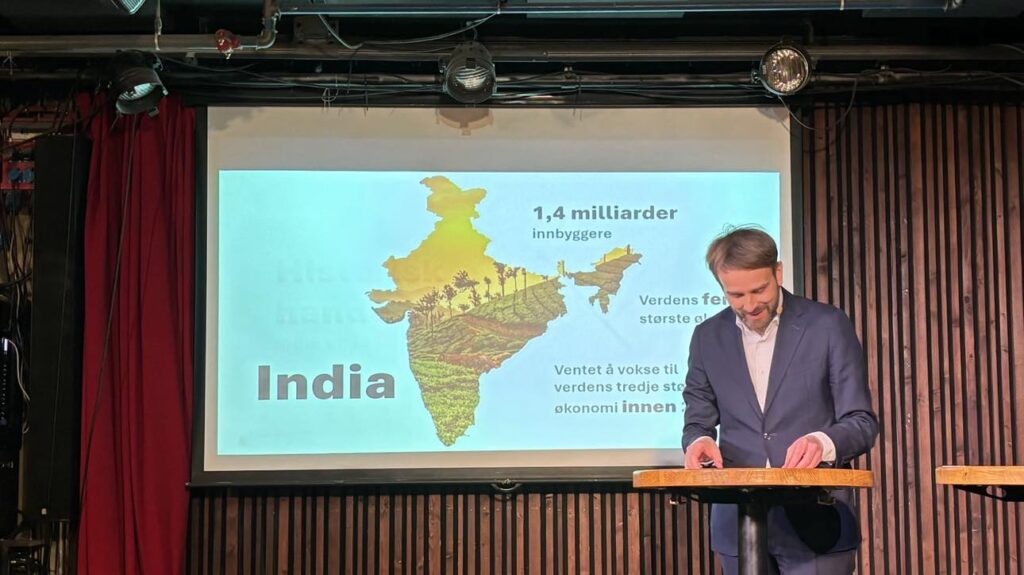
Dhoad Gypsies have performed in over 1500 concerts in 116 countries throughout the world within the last 23 years. They are considered the undisputed Cultural Ambassadors from Rajasthan. Dhoad Gypsies is a collective of consummate, wise, and spirited musicians, vocalists, and dancers of all generations.
Dhoad were chosen to perform for the President of India in Jaipur, for the new President of France, François Hollande, for Queen Elisabeth II for the Diamond jubilee celebration in London, and in a private concert for Mick Jagger, where they were appreciated by all. They are a mesmerizing, spectacular, fabulous show of poets, troubadours, musicians, and dancers from the country of Maharajas.
The Dhoad Band founder Bharti started this journey from the small village Dhod in Rajasthan, and has taken the Rajasthani folk arts and music across the globe. He has not only cherished the heritage of Rajasthan’s folk dance, music, and singing but played an important role in spreading the culture of India throughout the world through his Dhoad band for more than the last two decades.
Bharti has given opportunities to more than 700 artists from different communities to perform in his band, and gave an international platform to them. Dhoad is the only band from Rajasthan in India that goes around, performing in villages and towns, country to country, for six to seven months a year, and has continued to do so for 23 years non-stop.
Bharti, with his Dhoad band, has been conserving the tradition of folk singing, the heritage of folk music, and the heritage of folk music and legacy of folk dance. He has played an important role in spreading the culture of India through the folk music of Rajasthan in different countries. The Indian tradition and culture is so famous around the world, that Dhoad Band is frequently invited to perform.
We couldn't be more grateful to have Dhoad join us, to add a touch of vibrancy and excitement to our festivities. Their presence made our celebrations even more memorable, and we are truly honored to have them with us.
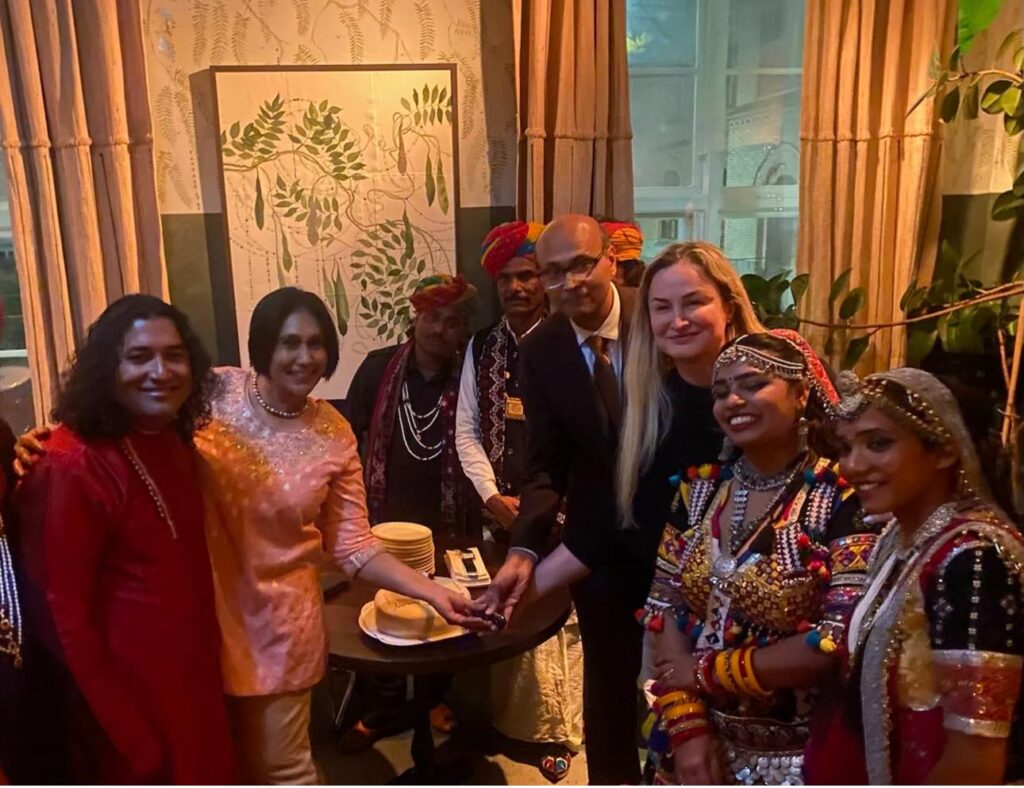




There were other events during Norway India Business Week, however they were by invitation only events.
At Det Moderne India, we are thrilled to commemorate our two-year anniversary—a significant milestone in our journey of illuminating the intricate tapestry of India's economy and geopolitics.
We had heard rumors of the Bollywood party hosted by CII at Davos being the most sought-after party, along with the Google party, at the World Economic Forum. Inspired by this, Dilek Ayhan, CEO of The Conduit, and founder of Det Moderne India, Rina Sunder, decided to bring this vibrant spirit to Oslo. It's impossible to fully convey the immense interest in the party, and the joyous celebration it brought to all who attended.
Our mission has always been to foster informed discussions and create platforms for knowledge sharing, with the ultimate goal of bridging the gap between Norway and India.
We are overwhelmed by the enthusiastic response. Your support has been instrumental in the success of the Norway India Business Week, a testament to the collaborative efforts of our speakers, guests, hosts, collaboration partners, and members.
Det Moderne India serves as a knowledge hub, dedicated to narrowing the knowledge gap between Norway and India. We extend our heartfelt gratitude to each and every one of you for your continued support. It is your encouragement that fuels our endeavors and grants us the privilege to operate.
Thank you for being an integral part of our journey towards fostering understanding and collaboration between Norway and India.

Key takeaways from the event underscore India's unique position in the global green movement:
1. Low Emissions and Efficient Resource Use: India's per capita emissions are significantly lower than those of Western countries. This efficiency in resource use, ingrained in the country's culture, sets a solid foundation for sustainable growth and development.
2. Thriving Green Tech Ecosystem: The country boasts a vibrant undergrowth of green tech companies. With a supportive ecosystem and the scale to rapidly expand, India is in a prime position to elevate the best green innovations to an industrial level. Such advancements promise not only to benefit India but also to contribute globally.
3. India-Norway Business Collaboration: The relationship between India and Norway is thriving and is poised for further acceleration, thanks to the new EFTA(Norway)-India free trade agreement. This agreement gives Norwegian businesses better access to the Indian market than most other European countries, opening up avenues for increased trade, collaboration, and shared green technology initiatives.
Providing a glimpse into the event through the images below:

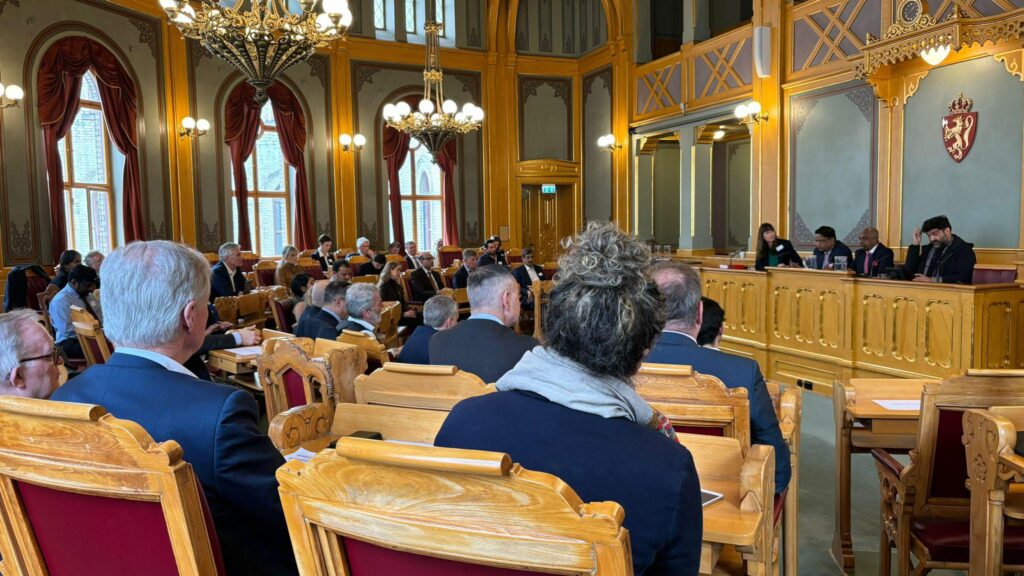
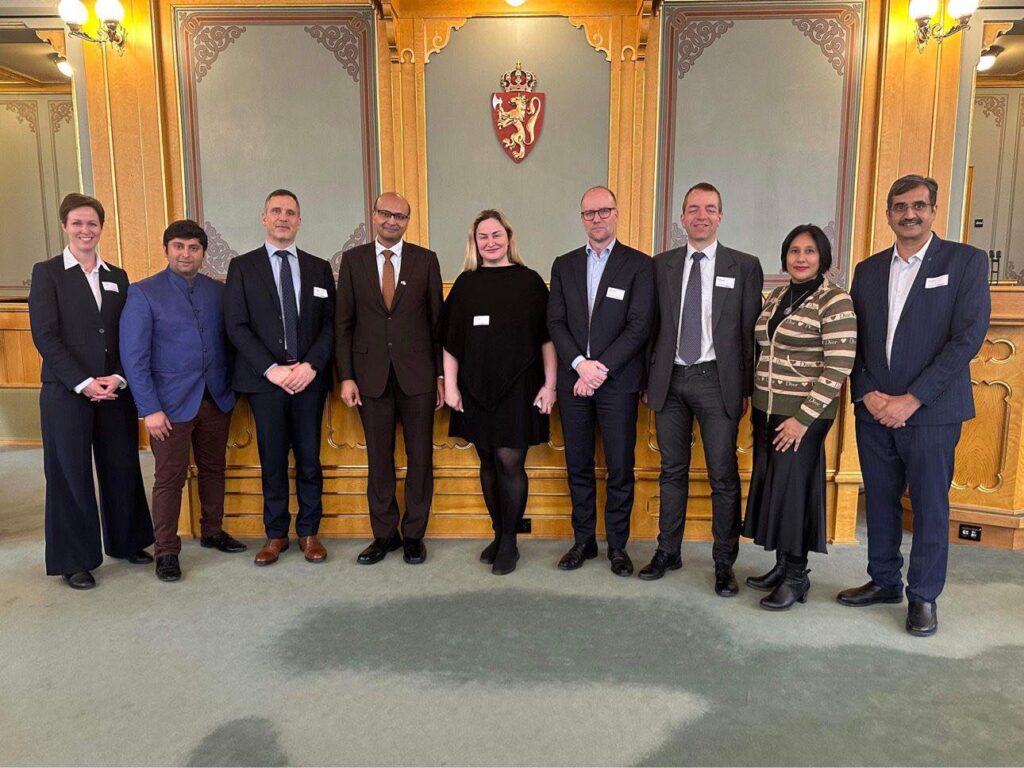
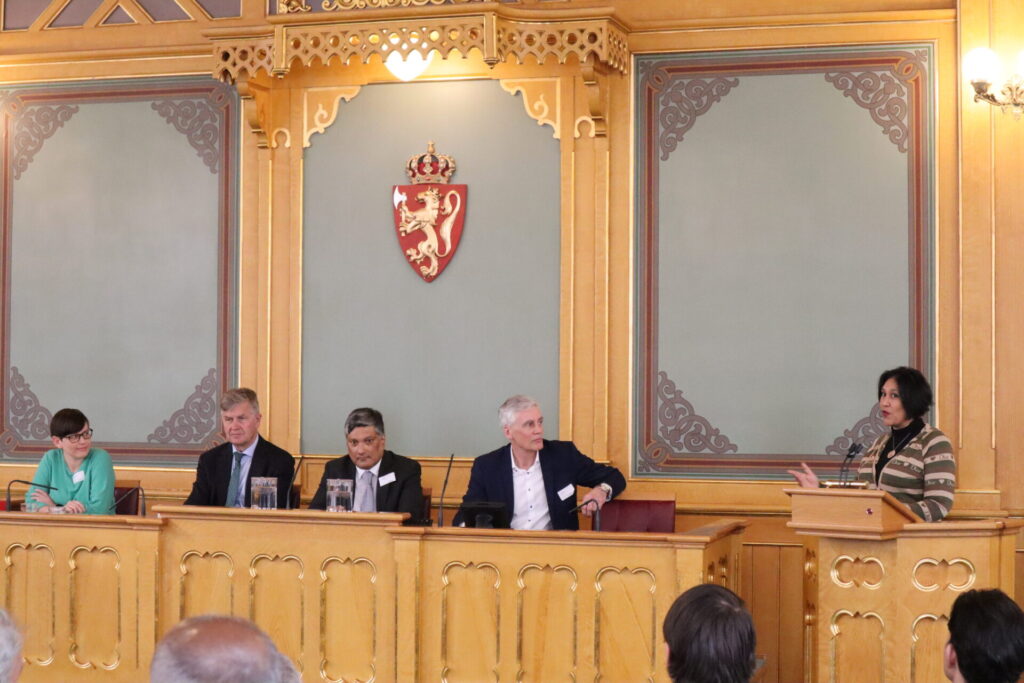
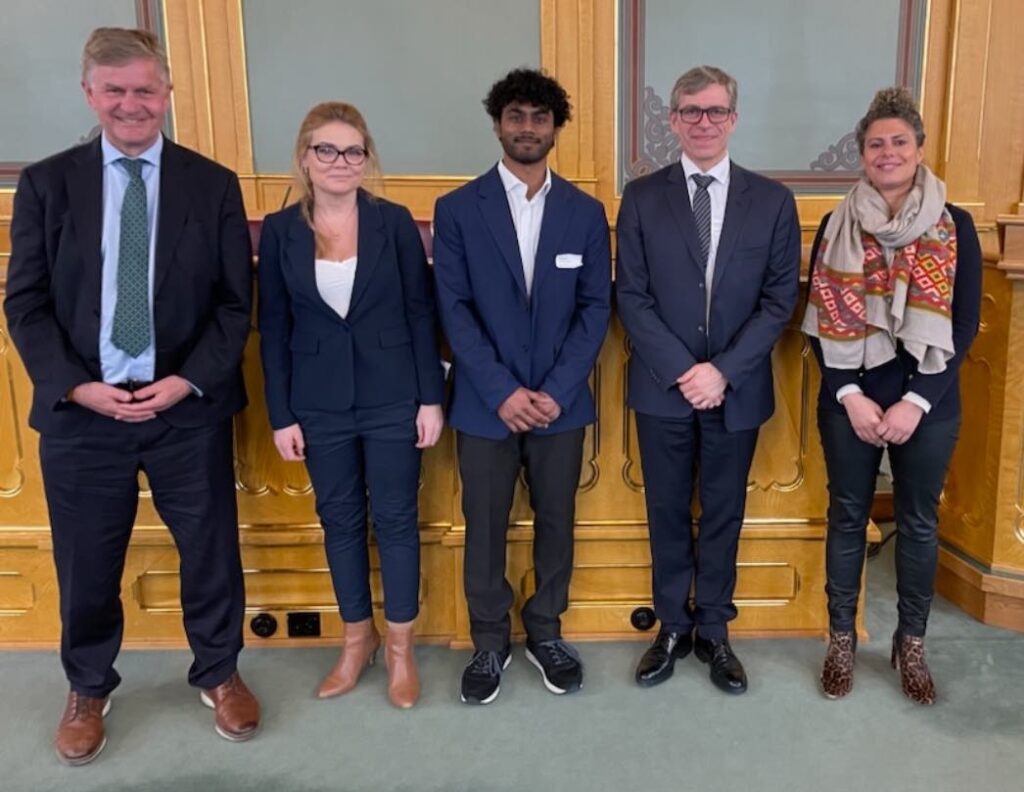

India's growing global role has implications for Norway, especially in the Arctic.
India’s role in global politics is on the rise. India’s development trajectory, coupled with its strategic location and non-aligned history, prompts the need to take a closer look at India’s role in the world. For Norway, the Arctic emerges a primary arena for interaction with India.
India has an Arctic policy from 2022 and its increasingly expressing an interest in this part of the world, in tandem with its global rise. This poses certain opportunities, but also challenges, for Norway – which defines the area as the country’s most important strategic priority.
Join us for expert insights and discussions with key speakers from both nations.
Programme:
15:00 - 16:00
Panel:
16:00 - 16:30 - Mingle
Organizers: Fridtjof Nansen Institute & Det Moderne India
